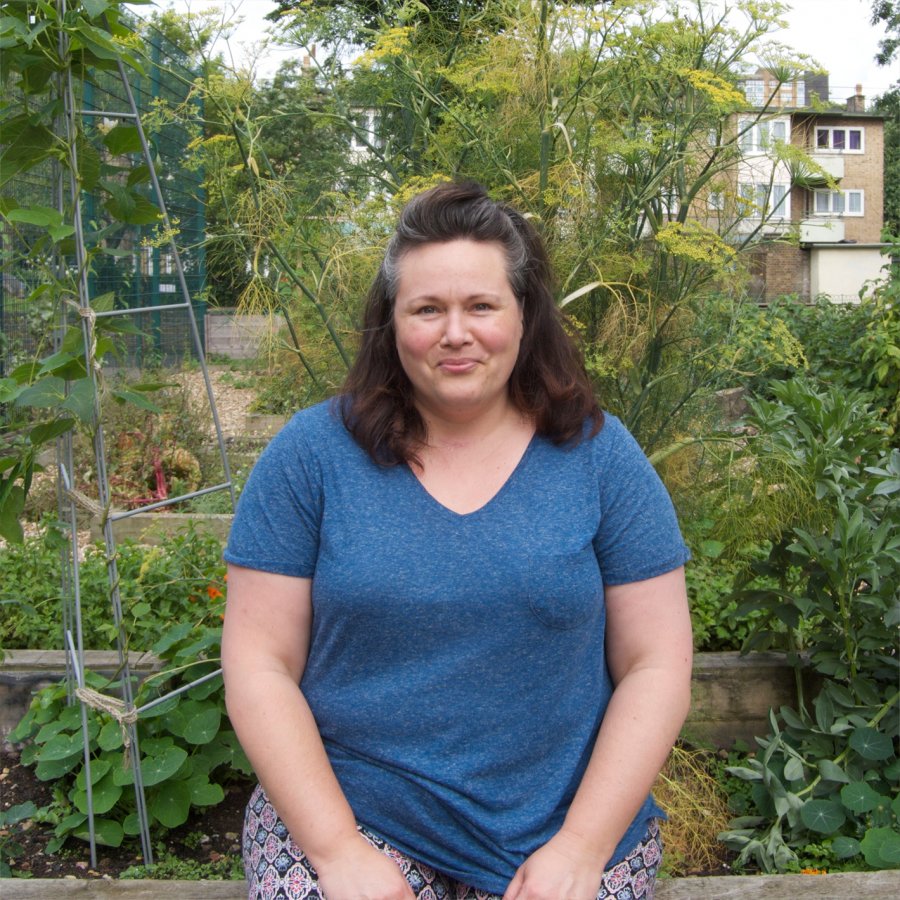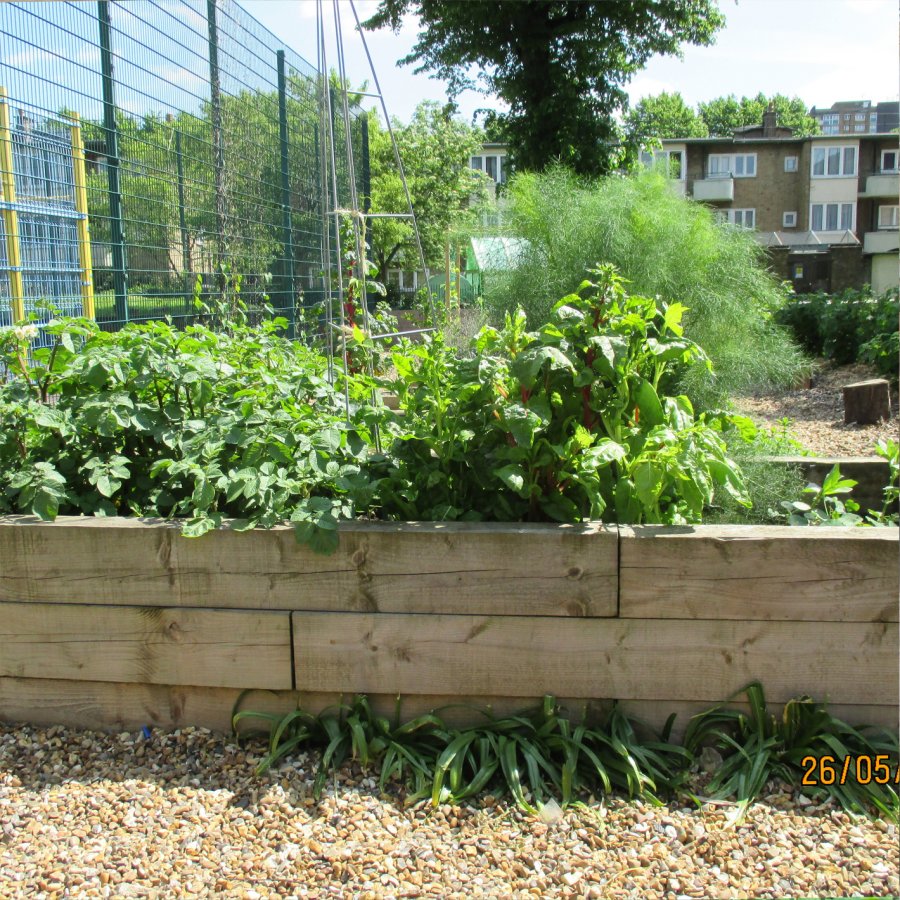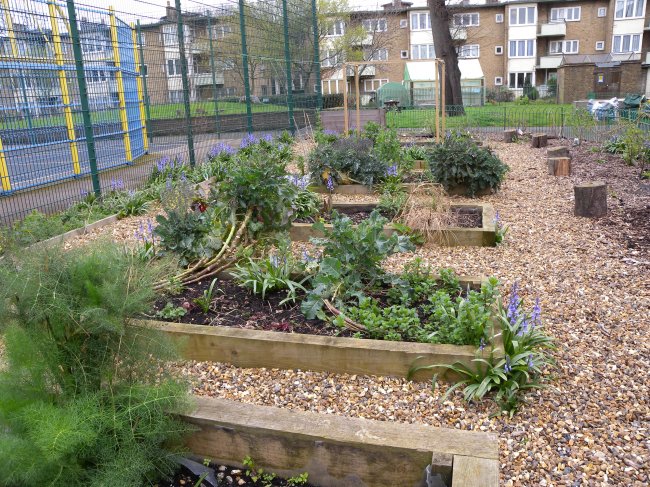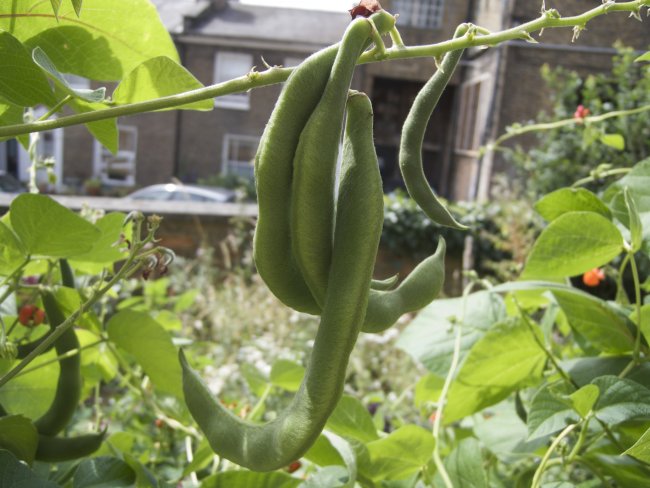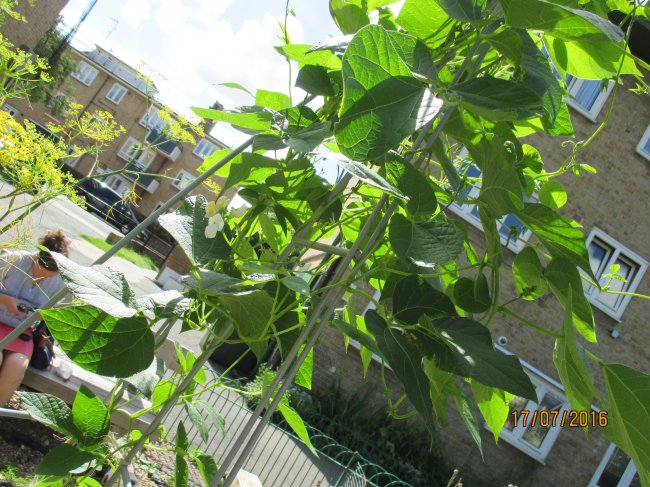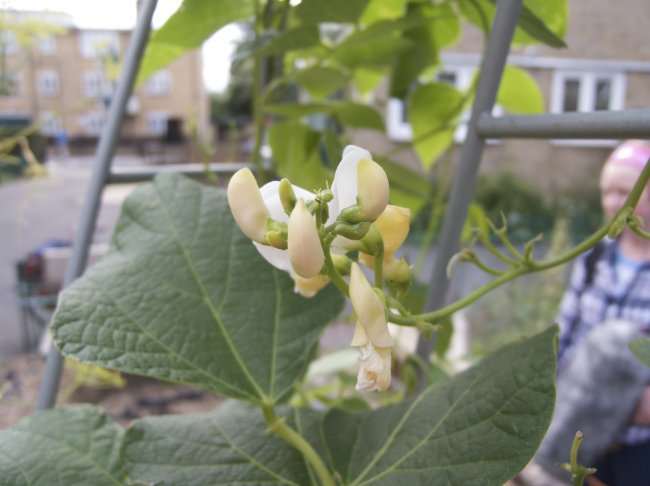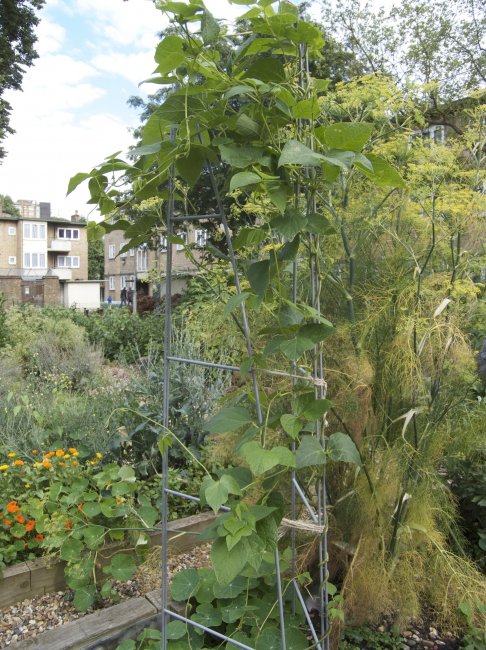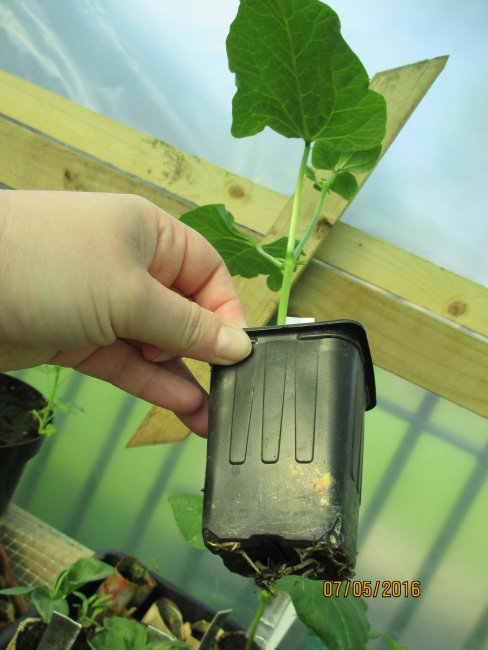My Story
About
Debbie Mitchener, Seed Guardian, Wilton Estate Community Garden
The allotment space of the is part of the wider community garden that’s on this council estate. I’m the chair of TRA and I help to manage the community gardening here.
Why I grow my own food
I grow my own food for my sanity. The food is a bonus, to be able to pick something and eat it fresh. I love cooking and I love baking, so to have those fresh ingredients is a bonus. But it actually helps aleviate symptoms of depression. Being outside and being surrounded by nature and having that dose of vitamin D even in winter, is a real boon to the system. It gives headspace. Especially in an urban environment where there is very little space for people. And time. It is all about space and time to think.
Why I save seeds
It’s an interesting experiment because you never know whether it will work and it always shocks me when it does. Having grown up in an environment where everything was bought commercially and covered in chemicals and had to be given chemicals to grow, and that was the way that it was dealt with, to think that I can grow a broad bean here, save the seed and plant it next year without all of that added interference from the chemical industry! And it still grows. And it’s still fine. I think the chemical industries and the seed industry is quite toxic. It’s a balance of nature and politics for me.
The very fact that we’ve got a heritage seed library in this country that cannot sell its seeds is totally and utterly ridiculous, because someone hasn’t given them a license. Yet those seeds have been grown for hundreds of years. Why does it have to be managed in such a way that it’s all about making money? You know, seeds, food, water, the air that we breath, they’re all basic human rights, and I think business needs to back off.
Connection between growing and my heritage
I grew up on a market garden. My father was a professional market gardener, so from the age of 9 I was out picking tomatoes, planting lettuce, all of that sort of stuff. My father just bought from the big companies. He stil does bless him. He wants to know that they’ve been treated because some treatments that they put on seeds are done to stop them from bolting. And he’s all for genetic modification as well. So I was brought up very much on the opposite side of all of that. There’s a constant headlock with that. I suppose you always do the opposite of what your parents did.
Hear from Debbie
How I feel when I work in the garden
I feel very peaceful. I’ll often come out here thinking, “Oh I need to do the weeding,” and I feel stressed, and I feel there’s pressure on me that I need to do things. But within minutes of being out here, all that’s gone and suddenly an hour has gone by and you lose yourself completely in it, and it’s almost like a meditative state that you get into very quickly. It has a real grounding and calming influence.
